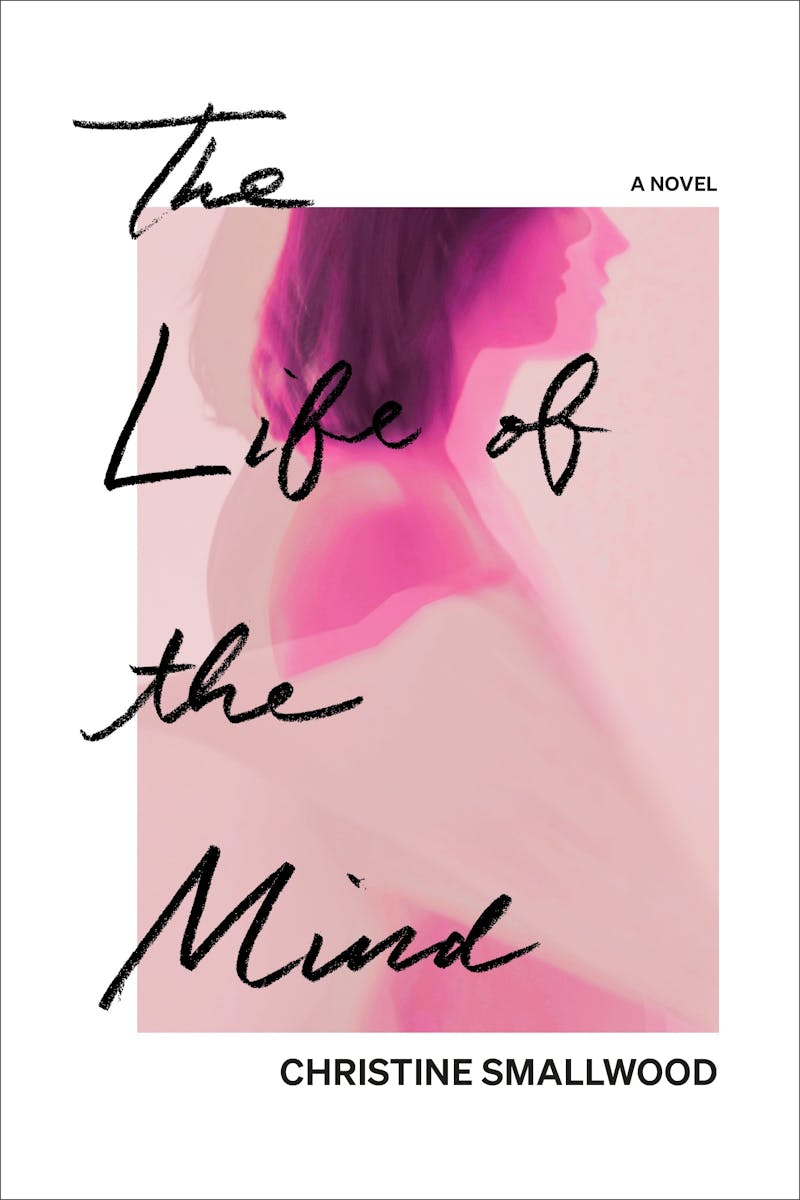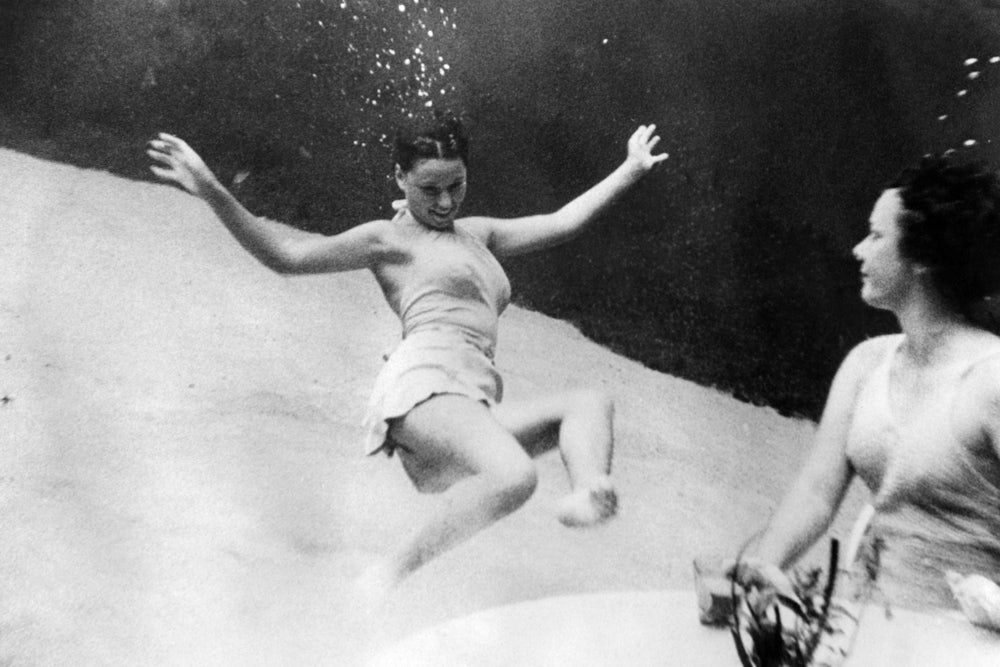In Marlowe Granados’s novel Happy Hour, it is 2012, New York, but not entirely as we knew it. Isa Epley and Gala Novak, two best friends with suitcases stuffed full of clothes and heads stuffed full of schemes, have arrived to spend a summer in the city; they are a brunette and an ice-blonde, respectively, the pairing classic as a mink coat and a pair of diamond earrings. (Isa, who is our narrator and who also happens to be one of the few non-white characters in Happy Hour, ends up being called “exotic” by numerous stupid men, as if she is a holiday destination rather than a human woman.) They both have the quintessential early-twenties big city experience, which is to say they go to bars, live on very little cash, dress flamboyantly, and live in something close to squalor.

Still, something about the setting feels unreal, slipped out of time, as if an intricate and luxurious rug might end up being pulled from underneath the reader’s feet at any moment. Blurbs and press both have compared the book to various kinds of drinks or cocktails—as “a gin fizz,” “a cold martini,” or “a glass of Prosecco ordered early in the night”—and have nodded to its bona fides as a text made for Party Girls. There has been an emphasis on its fizziness and its deftness, its deceptive and soufflé-like balance between weightlessness and craft. There has been applause for its acknowledgement of the financial vagaries of city life, its willingness to let its characters be poor and glamorous at the same time.

All of this is, I think, right: Happy Hour is a pleasurable book about repeated, small-scale scamming of the rich. It can be consumed at a voracious pace, and one could certainly enjoy it by the pool of a five-star hotel one has not paid a single cent to stay in. While reading it, though, I could not shake the feeling that its author had a further goal in mind. Somewhat unexpectedly, as I was trying to place its flavor, I found myself thinking of another coolly plotless novel about striving and surviving: Christine Smallwood’s savage The Life of the Mind. In it, an unhappy academic by the name of Dorothy is stagnating in her career. She has a miscarriage, makes her students’ coursework about the apocalypse, attends a conference, and then goes to a friend’s party where, squaring the circle, she learns that the friend is planning to terminate an unplanned pregnancy.
To compare Isa and Dorothy might, at first, seem like a false equivalence—what do an academic in her thirties and a 21-year-old hedonist really have in common? One thing might be that both women, who are not women of means, find themselves forced to spend time being amusing, pleasant, or polite around those who are judged—however superficially—to be their betters. Another might be their mutual interest in constructing and projecting a very specific image of themselves, whether that image is that of a serious and successful academic, or that of a carefree socialite. Ultimately, however different the two novels appear, each is powered by a sly acknowledgement of the inconvenient way real life eventually punctures fantasy, impeding the pursuit of dreams. Just as Smallwood’s novel suggests it is impossible to lead a life entirely devoted to the mind without both human nature and biology, in their infinite messiness, encroaching on it, Happy Hour slowly reveals itself to be a book about living a bodily life—one fully devoted to pleasure and luxury—that cannot help but be encroached on by the mind.
In The Life of the Mind, Dorothy fantasizes “that she might enjoy a notable career … be a scholar who taught at a top-tier research university and wrote books for the general reader that would be reviewed in the daily paper.” In practice, she is something of a mess. She is neurotic enough that she sees a second therapist in order to discuss her first therapist; in her home, a private sanctuary for her interior and exterior chaos, laundry covers every surface, and her hair litters the bathroom.
Where Happy Hour elides dirt, Smallwood’s novel revels in it to the point of ugliness, the body not just present but rebellious. The book begins with Dorothy “taking a shit … her body busy fulfilling its potential like some warehouse or shipping center.” A popped cyst produces “streams of white confetti,” and her menstrual blood is “drizzled syrup.” The end result of her miscarriage is catalogued in gory and unflinching detail: “thick, curdled knots of string, gelatinous in substance.” Dorothy assigns her students an apocalyptic sermon “hoping that [they’d] learn that hell was not something waiting at the end of life but something that could open its maw at any moment, pull you in, and devour you whole.”
“She couldn’t go on like this, she knew,” she thinks of job opportunities having “dried into a dust bowl.” But, she thinks, “[S]he also couldn’t not go on.” Frequently, she considers the possibility that the world will end at some point in her lifetime, making her feel guiltier and guiltier about her longing to excel in academia and about the habitual laziness that keeps her from recycling adequately or considering the greater good over her own needs and ambitions.
At the university library one night, she is unexpectedly moved by the sight of a man who looks like “a stock image of a young professor,” but who is in fact “an advanced graduate student … faking it till making it.” “The student,” she notes wistfully, watching him showily shake his fountain pen, is “performing his role, relishing the appearance of intellectual labor, aware … of having an audience.” Because status means the most to those who do not really have it, Dorothy is well-equipped to recognize “that most social interactions ... [a]re matters of function and role.” She performs, too, and is mortified when—in a neat reversal of her first mistaking the young student for a peer—the librarian confuses her with an unkempt graduate student. “Of course the librarian didn’t believe [that she is a professor],” she thinks glumly. “She didn’t believe herself. She looked down at her clothes. They were shabby and studentish. Her hair was unwashed… [She] thought how naïve she had once been to believe there was anything glamorous about the life of the mind.”
If the life of the mind is not glamorous, it proves to be just as challenging to maintain as the life of a hedonistic, full-time party girl. Dorothy might not be as chic or as fashionable as Isa, but there is undoubtedly an academic style—clean, untouchable, successful and unflappable—that she aspires to as proof that she is worthy of the “top-tier” role she dreams of. (When Smallwood reveals that Dorothy’s first real professional win was the publication of a paper on Daphne du Maurier’s Rebecca, it is hard not to imagine Dorothy feeling a greater kinship with the novel’s unnamed central character than with the mysterious, beguiling ex-wife of the title.) She has spent her entire professional career both furious with and enthralled by an older academic by the name of Judith, who was once her mentor and professor and is now “a node in a large and impersonal system that had anointed her a winner and Dorothy a loser.” When the two meet at a conference in Las Vegas and Dorothy finds herself being coerced by a quietly sadistic Judith into crying on command, Dorothy notices that her superior’s “lipstick ha[s] faded and her lips look … dry and naked.” “It was an act of will,” she thinks, “to refuse to reapply lipstick in front of another person. That kind of will was another form of domination.” For Dorothy, it is imperative that she maintains a veneer of professional and intellectual worthiness, even as she is constantly reminded of her imperfection.
One night, Dorothy returns home after work and catches sight of her slack midriff in a mirror. Because she has a tendency to intellectualize when faced with embarrassment or inadequacy, she turns to her knowledge of art history for reassurance. “The ancient notion that art holds up a mirror to reality,” she thinks, “was complicated in the eighteenth century by the idea that the mirror of art ought to reflect only certain parts of reality, those that people should imitate.” With this in mind, she rehangs the mirror so that it does not show anything below her neck, allowing her to see only the parts of herself she desires to see. It is a rare moment of harmony between her physical and intellectual selves—one lasting only as long as it takes for Rog, her partner, to return home and accidentally break the mirror in half. “Now,” Dorothy observes a little ruefully, feeling once again as if she’s in shambles, “whichever way you hung it, it split you in two—like a magician had come along, dazzled the crowd with half a trick, and forgotten to put you back together.”
Few women in literature, it must be said, have been more scrupulously put together than Marlowe Granados’s heroine Isa Epley. When I said earlier that Happy Hour felt unstuck from time, what I actually meant was that despite being located in the present day, stylistically, its invocation of an earlier era is precise enough to suggest a knowing pastiche. Isa peppers her narration with deliberate, delicately mannered pronouncements on effective social climbing—“one should,” she often begins, or “one ought”—and speaks in aphorisms, usually pertaining to cultural mores, dating, New York living, or the temporary acquisition of a moneyed man. The book has no actual sex scenes, and aside from a passing allusion to a character once having taken ecstasy, there are no serious drugs. There is one reference to abortion, in the coyest and most elliptical terms. Men describe our two heroines as having “moxie,” or they call them “good-time girls.” Happy Hour may, in other words, technically be a novel about contemporary-ish New York scammers, but it can also be read as a novelization of a theoretical gold-digging comedy from the 1950s, minus the ultimate threat of matrimony. Its omission of more explicit material has less to do with squeamishness than it does with a tongue-in-cheek adherence to the Hays Code.
Now and then, when something less-than-glamorous appears in the text, there is a shift, as in a dream when some detail or other reveals to the dreamer that he or she is not actually awake. This phenomenon occurs when Isa, as she sometimes does, makes a casual observation about gendered violence, sounding knowing but resigned. “Sometimes when it’s late at night,” she says, “a girl turns into a moving target.” It occurs, too, when she overestimates the power of her charm. In one fraught encounter, she absconds to the Hamptons to stay with a WASP acquaintance with the very ’50s name of Cooper Flemming. Cooper, an entitled brute, reads her diary and humiliates her. As she leaves, there is a skirmish about who will end up getting a free ride back to New York. “Coop held my [car] door open, his white knuckles tightening around the open window, and I sat there unbudged,” she says. “He shut the door and through the window said ‘You win this time, champ.’”
Isa’s façade of flawless and unbothered elegance endures, for the most part, all the way through Happy Hour, up until a very brief stretch when she ends up wearing the same clothes repeatedly, becoming greasy-haired and “ashen.” “Today is my mother’s birthday,” she reveals at the beginning of this fleeting downward spiral. “Death is not unspeakable, but it often feels that way.” It transpires that her mother entered a coma and passed away from cancer two years previously, and that Isa moved away before she died. One of Isa’s enduring memories of her mother is of her propensity to sing “the standards,” in particular a song from the Richard Rogers and Oscar Hammerstein musical, Pal Joey; another is of her tendency to remind Isa that, “[I]n life, you must familiarize yourself with what is glamourous.” “Six months after the fact,” Isa suggests, “everyone thought I was fine... I have always given a convincing performance.”
A fascinating fracture in the reader’s image of the novel’s heroine occurs, as we are offered a brief, tender glimpse of a still-young girl, brave but grieving, who has honored the memory of her parent by adopting the same attitude to life as one of the fearless, fast-talking adventuresses that appeared in both women’s favorite movies. In a dazzling trick, Granados cracks the mirror she is holding up to Isa’s enviable version of reality, splitting her party girl in two. “Maybe,” Isa tells a man mischievously, “I belong to a different time.”
Happy Hour’s meticulous building, then puncturing, of a retro-tinted fantasy turns out to be the thing that lends it its fresh, interesting taste: It is the unfamiliar ingredient whose lack of sweetness complicates the novel’s flavor. Many women without means, like Isa, put on good performances. Her sweetly bratty self-mythologizing, her insistence on The Rules, her ability to always have the right phrase on her tongue—all of this allows her to project an untouchable exterior, even when she is in pain. Eventually, she rallies, privately pulling herself together and emerging back into the social whirl of New York with aplomb. She won’t, she says, use grief as currency. “My mother told me that to be a girl,” Isa thinks in the first line of the book, as she is flying into New York, “one must always be especially clever.” In light of the novel’s final chapters, what was once a gently witty observation becomes extraordinarily poignant, making it especially clever, too.
In The Life of the Mind, Dorothy—whose most burning desire is to be seen as especially clever—asks her students why someone might choose to reveal “their worst self.” “Do they want to die,” she adds, “or to survive death?” It seems fair to say that revealing one’s worst self becomes easier by far when one is operating from a position of power, helping to explain why an aristocrat might feel entitled to steal and read his civilian guest’s diary, or why a successful academic might feel capable of publicly humiliating her ex-protégé.
In Smallwood’s and Granados’s novels, nominally powerless women endure grief, death and professional calamity by presenting, or by trying to present, an ideal version of themselves. In the end, each of them ends up living something like the other’s dream. Granados has Isa meet up with a literary agent, the result being a sweet and cheeky lean into the trope of the heroine’s diary turning out to be the very book you’re holding in your hands. Dorothy, meanwhile, lets down her guard and experiences a quiet epiphany while drunk and watching karaoke at a party. “Her friends, and their friends,” she tells herself, “were so beautiful. She could see their souls shining; it was an unbearable burden, to love them so much.” It is a burden, sometimes, to remain a striver and an optimist in a world that can be unfair and merciless. Still, how else ought one behave if one wants to survive?






